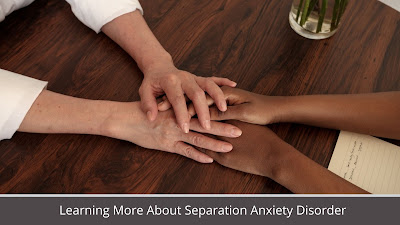Learning More About Separation Anxiety Disorder
Separation anxiety is a form of anxiety that occurs when someone is separated from someone to whom they are attached. Normally, this is seen in small children, and it can also continue well into adolescence and adulthood in some cases. Sometimes, it can impair social skills, academics and even a career. It has to do with someone feeling that something harmful will happen to their loved one while they are away from them. It makes the person afraid to be left alone without the one they love.
Separation Anxiety Disorder in Children
In children, separation anxiety is very common. This is especially true when it is time for the first to start preschool or elementary school. If they have been accustomed to being with their parent all the time, then suddenly they have to be away from them for most of the day, which can lead to some anxiety. Some symptoms include headache, upset stomach, and even sometimes vomiting. Sometimes, children may even have bad dreams about separation, which can worsen this anxiety.
How it Affects Adults
In cases where separation anxiety disorder continues into the adult years, it can turn into something a bit more severe. Adults may have a full-on panic attack, or anxiety attack, due to separation anxiety. You may wonder what would cause an adult to feel this way. It is usually something in their genes that makes them vulnerable to this type of anxiety. The good news is that there are ways to treat it effectively.
Treating Separation Anxiety Disorder
If your child is experiencing separation anxiety, you will want to talk to their doctor about it. You can usually get them involved in counseling. Once they start counseling, they will be taught to get rid of the bad thoughts about their loved ones being away from them and replace them with positive ones. Training the child to have a positive outlook is the best way to overcome separation anxiety disorder. They will also be taught various ways to help themselves calm down in the event of an anxiety attack.
It is important to remember that some anxiety due to separation is expected. If it continues for over a month, your child may have a separation anxiety disorder and may need to seek treatment.



